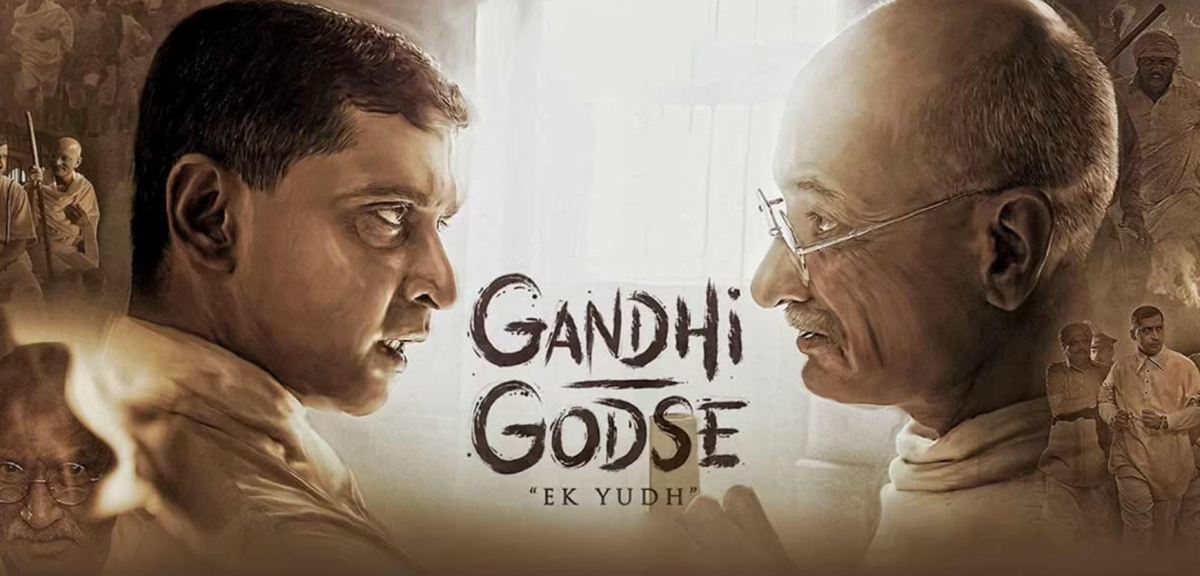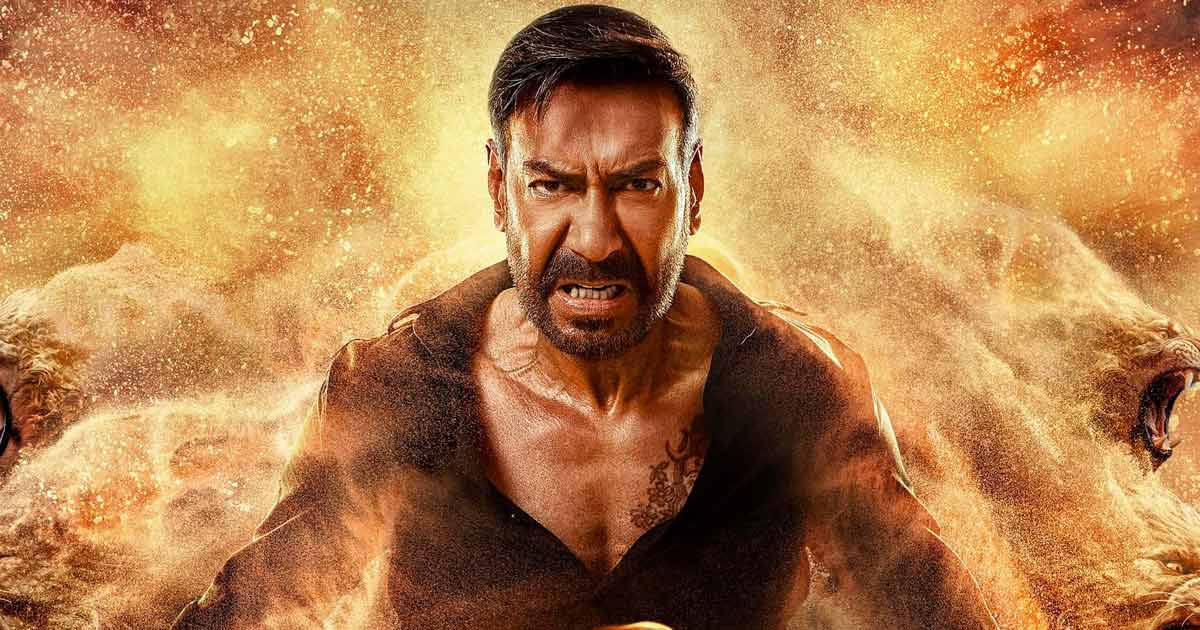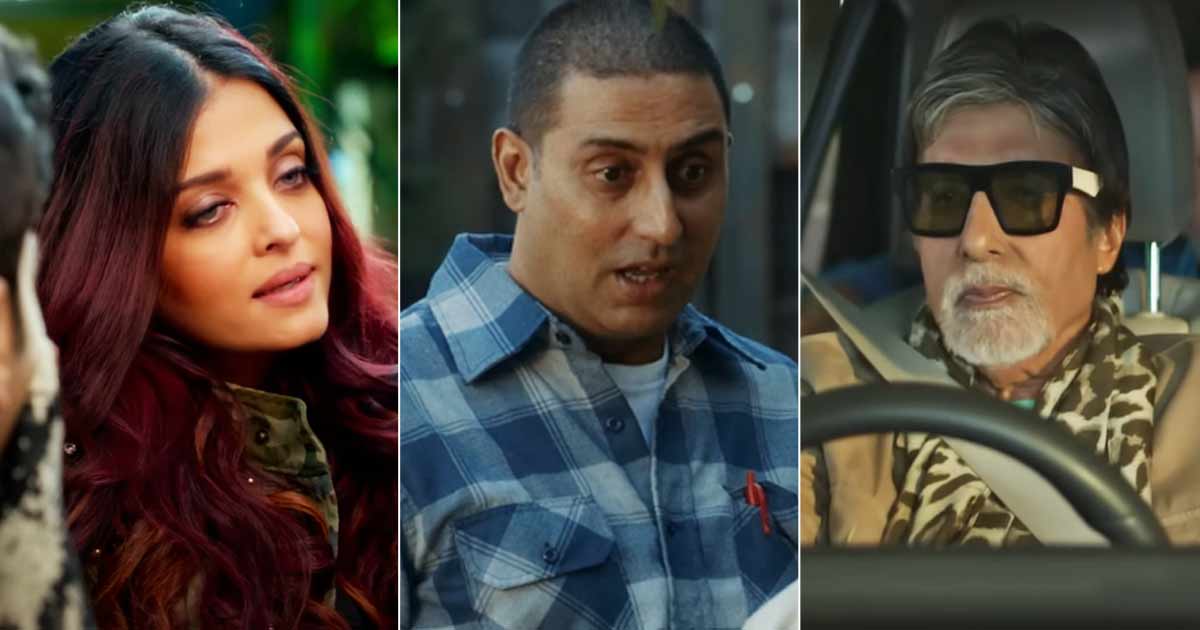
Gandhi Godse – Ek Yudh review: War of words better than pointing guns – Beyond Bollywood
Despite threatening to be an anti-Gandhi film, the Rajkumar Santoshi ideological drama has its heart in the right place.
Rating: 2.5 / 5
By Mayur Lookhar
A war in its title. Then a trailer that didn’t shy from using strong words against Mahatma Gandhi. Filmmaker Rajkumar Santoshi, too, raised questions on the Father of the Nation during the promotions. Gandhi Godse – Ek Yudh [2023] had Gandhi critics excited. Godse empathizers perhaps cheered the prospect of having a film that will justify his actions. Godse critics were quick to label this as another Saffron propaganda.
The anti-Gandhi, pro-Godse narrative probably painted a certain picture in one’s mind. Yes, there is a clash, but it’s a vicharon ka yudh [war of ideology]. Based on Asghar Wajahat’s play, writer-filmmaker Rajkumar Santoshi’s Gandhi Godse – EK Yudh builds its world around a hypothesis. It initiates a dialogue between Mahatma Gandhi, and the man who killed him Nathuram Godse.
On 30 January, 1948, Godse, a staunch Hindutva supporter, killed the father of the nation. History suggests that he’d attempted to kill the great man before. Asghar Wajahat, though, tinkered with the idea of what if Gandhi and Godse had a debate. So, in his world, Gandhi [Deepak Antani] survives the assassination attempt, and upon full recovery, he expresses a desire to have a conversation with his assaulter Godse [Chinmay Mandlekar], who is serving a jail sentence.
Their ideologies are poles apart, but through the course of this film, both men eventually begin to respect each other’s views. There’s no imposition of any ideology, but eventually there is an understanding of the values that the great man stood for. For Godse, the film is cathartic as it breaks the widely accepted notion of him being a Hindu extremist. 74 years later, this would still be difficult to digest for Godse critics. But going by the Gandhian principles, shouldn’t one let go of vengeance, resentment? Had he survived, the great man surely would have forgiven Godse. Gandhi Godse – Ek Yudh is no whitewashing Godse’s image. It simply urges the society to stop demonizing the man. The film humbly sensitizes you to the true meaning of Gandhian principles.
It’s no one-way traffic though, as Gandhi, too, takes cognizance of Godse’s views. There is merit in some of the arguments raised by him. Santoshi’s Gandhi also busts myths, allegations around him – chief among them is handing out Rs55 crore to Pakistan at the time of partition.
Present-day politics has Hindu nationalists ruling the country. The establishment has often mooted the idea of a Congress-mukht (less) Bharat. Upon gaining Independence, Gandhi had famously stated how the Congress National Party should be dissolved. After all, this was formed for the freedom struggle. Post freedom, Gandhi ji wished for his fellow eminent Congress leaders to serve the people, and return to power through a democratic process. This naturally made the powerful Congress top brass uncomfortable. It’s these moments that partly reek of a propaganda. Sorry, rather Congress mukht abhiyan.
Santoshi’s film subtly exposes the corrupt society where noble schemes for the poor bore legendary names, but were misused at the ground level. The action here shifts the focus from the Gandhi-Godse debate. The corresponding screenplay plays out poorly. The director has a fine core story idea, but after an intriguing opening 30 minutes, the subsequent screenplay is dull. The meandering continues in the second half, too, but the film gets back on track the moment the Gandhi-Godse dialogue resumes. Though just 110 minutes in length, the Congress mukht abhiyan moments partly drag the film down.
Though it rides on a flight of fancy, the story is made believable by the sincere efforts of Deepak Antani and Chinmay Mandlekar. Many actors have stepped into the shoes, rather dhoti-shawl of Mahatma Gandhi. The key to a successful portrayal often lies in absorbing the simplicity of the man and respecting his human values. Antani floors you with his humble effort.
He was menacing as Farooq Malik Bitta in The Kashmir Files [2023]. Mandlekar goes from extreme to another. But playing a Godse offers the chance for reformation, which the real man never got. What about reformation for the real Bitta? If not his race, maybe, the nature of his crime makes it hard to empathise with a Bitta. For a centrist, Mandlekar calls Godse a Hindu nationalist, but tags Bitta as a Muslim extremist. As an actor, Mandlekar is very convincing in his roles. Mandlekar’s Godse is a hard nut to begin with, but gradually you see the little change in him. The key moment is when for the first time he refers to Gandhi as Mahatma in a later conversation. Before that he rudely addressed the man as Gandhi. Mandlekar’s the fire, while Antani is the ice. You do, question that if Santoshi’s Gandhi has pardoned Godse, why does the convict still lie in jail?
Santoshi’s baby face daughter Tanisha makes her acting debut. The young lady has a fine screen presence, but comes with buckets of tears. Sushma [Tanisha] is a young girl who expresses a desire to serve at a Gandhi ashram. She is in love with a Delhi college professor Naren [Anuj Saini]. It’s a befuddling, though how Gandhi becomes the object of divide. Tanisha is gifted with simplicity, innocence, but has miles to go as an actor. Saini, too, sails in the same boat.
A.R. Rahman has an academic contribution to the music. Shreya Ghoshal’s rendition of late Narsinh Mehta’s Vaishnav Jan To poem is soothing. It also helps Tanisha to get some more screentime.
It’s a surreal moment for Asghar Wajahat, whose play has finally seen the light of the day on the silver screen. Despite, its few deficiencies in screenplay, Gandhi Godse – Ek Yudh succeeds in striking a civil conversation between various ideologies. In new India, a Gandhi is largely reduced to a currency or a stamp. His name is milked for political gain. The corrupt often justifies his acts by saying, “It is no good to be a Gandhi in the big bad world”. Present day India has grown economically. The citizens are largely free to make their choices. Gandhi would never stand in the way of ambition, but such films are reminder of the principles, human values that the Mahatma envisioned for a free India.
Publisher: Source link



